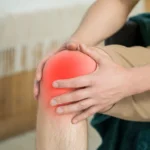Rheumatoid Arthritis and Fatigue Management Tips – Your Go-To Guide
Living with rheumatoid arthritis (RA) can be challenging, especially when fatigue comes into play. If you’re feeling drained more often than not, don’t worry—you’re not alone. In this guide, we’ll break down some effective fatigue management tips to help you reclaim your energy and get back to doing the things you love.
 If you’ve been diagnosed with rheumatoid arthritis, you’ve probably heard about how the condition can mess with your joints. But here’s the thing: RA doesn’t just affect your joints—it can also leave you feeling completely wiped out. That constant fatigue is one of the most frustrating symptoms of RA, and it can make daily life harder than it already is. But there’s good news! There are practical steps you can take to manage that fatigue and boost your energy levels. Let’s dive into how you can handle RA fatigue and still live your life to the fullest.
If you’ve been diagnosed with rheumatoid arthritis, you’ve probably heard about how the condition can mess with your joints. But here’s the thing: RA doesn’t just affect your joints—it can also leave you feeling completely wiped out. That constant fatigue is one of the most frustrating symptoms of RA, and it can make daily life harder than it already is. But there’s good news! There are practical steps you can take to manage that fatigue and boost your energy levels. Let’s dive into how you can handle RA fatigue and still live your life to the fullest.
Why Does Rheumatoid Arthritis Cause Fatigue?
Before we talk about how to manage fatigue, it’s important to understand why it happens. RA is an autoimmune disease where your body’s immune system attacks your own joints, causing inflammation. This inflammation doesn’t just hurt your joints—it can also make you feel tired, sluggish, and generally wiped out. When your body is in a constant state of inflammation, it uses up a lot of energy trying to fight it off. This leads to that bone-deep fatigue that many people with RA experience. But here’s the thing: fatigue from RA is different from the kind of tiredness you feel after a long day of work. It’s more intense, and it can hit out of nowhere, even if you’ve had plenty of rest. This can make it harder to get through your day and keep up with your normal routine. That’s why finding ways to manage it is so important.
But here’s the thing: fatigue from RA is different from the kind of tiredness you feel after a long day of work. It’s more intense, and it can hit out of nowhere, even if you’ve had plenty of rest. This can make it harder to get through your day and keep up with your normal routine. That’s why finding ways to manage it is so important.
Tips for Managing RA Fatigue
Managing fatigue with RA is all about finding what works for you. There’s no one-size-fits-all solution, but here are some practical tips that might help you feel more energized:
1. Pace Yourself and Prioritize Rest
One of the first things to keep in mind is that you don’t need to push through fatigue all the time. It’s okay to take breaks, even if you feel like you have a ton to do. Overexerting yourself can make fatigue worse, so give yourself permission to rest when you need to. Listen to your body—it knows what’s best for you!
2. Stay Active (But Don’t Overdo It)
Exercise might be the last thing on your mind when you’re tired, but light physical activity can actually help reduce fatigue over time. Even something as simple as a short walk, some gentle stretching, or yoga can help improve circulation and boost energy. Just make sure to take it easy—don’t push yourself too hard, or you might end up more fatigued than before.
3. Manage Stress
Stress can make RA fatigue worse, so finding ways to relax is crucial. Stress has a sneaky way of draining your energy, so take time for activities that help you unwind. Whether that’s meditation, reading, or listening to music, find what helps you feel calm and centered. Even 10 minutes of deep breathing can make a big difference.
4. Get Enough Sleep
This might sound like a no-brainer, but it’s especially important for people with RA. Sleep helps your body recover, and if you’re not getting enough, fatigue can pile on top of fatigue. Aim for 7–9 hours of sleep each night, and make sure your sleep environment is as comfortable as possible. If you’re having trouble sleeping due to pain, consider talking to your doctor about ways to manage your discomfort at night.
5. Stay Hydrated and Eat Well
What you eat and drink can play a huge role in how you feel. Staying hydrated is key to keeping your energy levels up, so aim to drink water throughout the day. Eating a balanced diet full of fruits, vegetables, whole grains, and lean protein can help support your body’s energy needs.
6. Manage Pain Effectively
RA pain and inflammation can take a lot out of you, which can worsen fatigue. It’s important to work with your doctor to manage your pain effectively, whether that means taking medication, using heat or cold therapy, or trying other treatments like physical therapy or acupuncture. When your pain is under control, your energy levels are more likely to improve.
7. Stay Organized
When you’re fatigued, it can be tough to keep up with everything. Try organizing your day to reduce the mental load. Use a planner or set reminders on your phone to help you stay on top of tasks. It can also help to delegate tasks to others when possible, so you’re not shouldering all the responsibility.
8. Consider Medications or Supplements
In some cases, medications or supplements can help manage fatigue. Some people with RA find that taking specific medications to reduce inflammation can help with their energy levels. There are also supplements, like vitamin D or omega-3 fatty acids, that may be beneficial for people with RA. Be sure to talk to your doctor before starting any new treatments.
Additional Strategies to Boost Energy
Here are some additional ideas to help keep your energy up throughout the day:
- Break up your day with small activities: Don’t stay sedentary for long periods. Try to get up and move around, even if it’s just for a few minutes.
- Take naps: Short, 20–30-minute naps can help recharge your batteries without leaving you feeling groggy.
- Use assistive devices: Things like joint supports or ergonomic tools can make daily activities easier, reducing strain on your body and helping preserve energy.
Conclusion
Living with rheumatoid arthritis can feel like a balancing act between managing joint pain and tackling the fatigue that comes with it. The good news is, with the right strategies, you can manage both. By pacing yourself, staying active, and focusing on self-care, you can make a big difference in how you feel day-to-day. Remember, RA fatigue is common, but it doesn’t have to control your life. With some lifestyle tweaks and support from your healthcare team, you can take steps toward feeling better and enjoying life more fully.
Appendices
FAQs
- Why does RA cause fatigue? RA causes fatigue because your body’s immune system is constantly attacking your joints, leading to inflammation. This uses up a lot of energy, making you feel tired and drained.
- Can exercise help with RA fatigue? Yes! Gentle exercises like walking or yoga can help improve circulation and boost energy. Just make sure to start slow and listen to your body.
- What foods can help reduce RA fatigue? Anti-inflammatory foods like fatty fish, nuts, olive oil, and vegetables can help reduce inflammation and support your energy levels.
- How can I manage pain and fatigue at the same time? Working with your doctor to manage your pain is key. Medications, physical therapy, and other treatments can help reduce pain, which in turn can improve fatigue.
- How much sleep do I need if I have RA? Aim for 7–9 hours of sleep each night. Quality sleep is essential for managing fatigue and helping your body heal.
References
- National Institute of Arthritis and Musculoskeletal and Skin Diseases (NIAMS). (2024). Fatigue in Rheumatoid Arthritis: Understanding and Managing Symptoms. NIAMS.
- Smith, J., & Lewis, K. (2023). Managing Fatigue in Rheumatoid Arthritis: A Comprehensive Guide. Journal of Rheumatic Diseases, 44(3), 235-240. Read Article
- American College of Rheumatology (ACR). (2024). Fatigue and Rheumatoid Arthritis: Finding Relief. ACR Website
Disclaimer
The information provided in this article is for educational purposes only and does not substitute for professional medical advice. Always consult with your healthcare provider regarding any health concerns, including managing rheumatoid arthritis and its associated fatigue. The effectiveness of these tips may vary depending on individual circumstances, so personalized care is essential.














